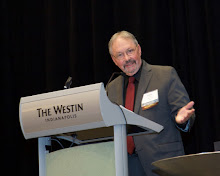“I know that you believe you understand what you think I said, but I’m not sure you realize that what you heard is not what I meant.”I almost hate to return to the subject of Toyota, but occasionally I read something that just plain makes my head hurt. This is one of those times.
An article in the New York Times (“Millions of Toyotas Recalled, None in Japan”) discusses the plight of Japanese Toyota customers who allegedly have experienced unexpected acceleration problems. The article cites veterans of Japan’s consumer rights movement, who say that these customers are the victims “. . . of a Japanese establishment that values Japanese business over Japanese consumers, and (of) the lack of consumer protections here.”
In response to these allegations, the article notes that while Toyota has recalled eight million cars outside Japan because of unexpected acceleration and other problems, it has insisted that there are no systemic problems with its cars sold in Japan.
What causes my head to hurt?
It’s a simple question that keeps running through my mind. Is Toyota telling customers in its North American and European markets that it produces problematic vehicles for distribution in the rest of the world, or is it telling its domestic market that it takes better care of consumers in North America and Europe than it does at home?
In a global marketplace and an era of instant communication and social networking, absolutely nothing will destroy the public’s trust in – and the credibility of – a brand faster than potentially contradictory messaging.
Perhaps what I understood I thought Toyota said is not what it really meant.
But my head still hurts.





